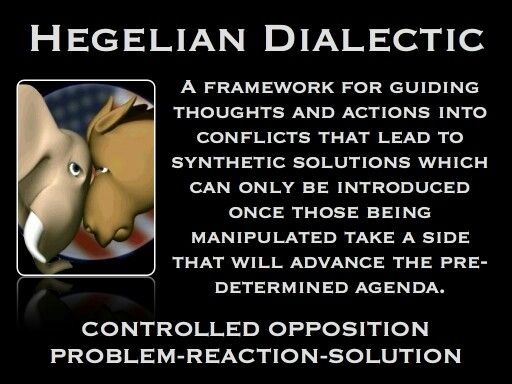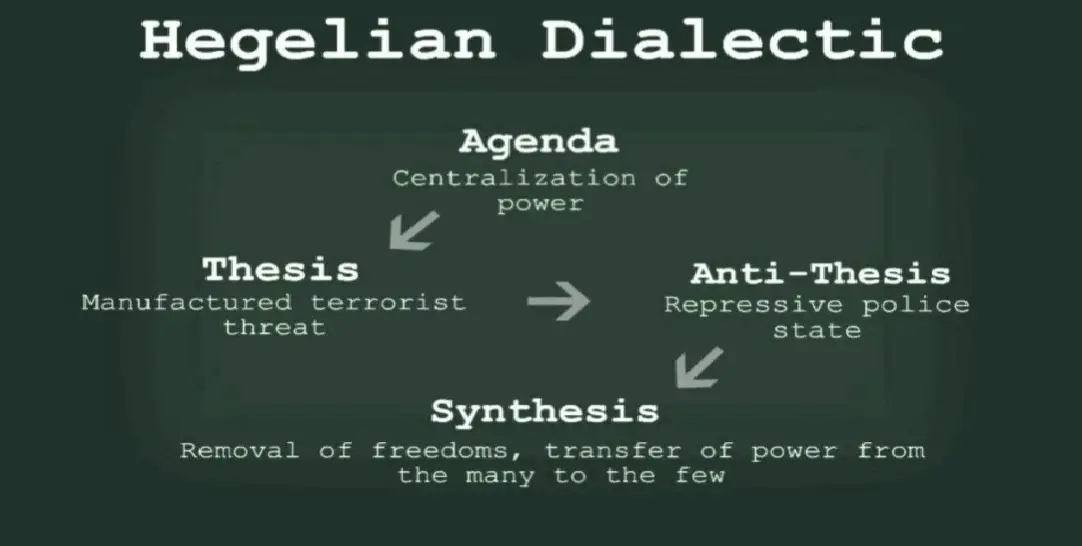

Mañebog further explains that in this example, the thesis is childish obedience, the antithesis is a form of adolescent rebellion, and finally the synthesis is independent adulthood with a good relationship with parents.
The hegelian dialectic full#
Now, when our character as teenager develops into a young adult, our negative attitude to our parents tones down, and our relationship with them even becomes better once we attain full independence. Mañebog exemplifies this method by using a usual child’s personal development in relation to his relationship with his parents:Ĭharacteristically, we, as a young child, consider our parents to be an ultimate authority.īut as we become older, we start to form our adult personalities, and the various changes we undergo during puberty usually make us a problematic teenager whose parents stop being authoritative (and, for some, even become a sort of an embarrassment). Here, the thesis and antithesis are reconciled to form a new statement. It is a proposition through which the differences between the two points are resolved. This is a reaction that contradicts or negates the thesis.

This refers to a beginning proposition or statement of an idea. This can be clearly understood in the three stages of development or “the triad” comprising the Hegelian dialectic: He clarifies that in this interpretive method in philosophy, the contradiction between a proposition (thesis) and its antithesis is resolved at a higher level of truth (synthesis). Mañebog explains how that Hegelian dialectic leads to truth (and wisdom). In his lecture (the basis of this article), Filipino Philosophy professor and textbook author Jensen DG. It is like a debate, though without subjective elements (such as emotional appeal) and uncomplimentary rhetoric.

What is dialectics? Can we give a clear “Hegel dialectic example”? Basically, the term “dialectics” means a method of philosophical argument that involves a form of contradictory process between opposing sides.ĭialectic is distinct from the didactic method, in which one side of the conversation teaches the other.ĭialectical Method is also called Hegelian Dialectics as this was proposed by Georg Wilhelm Friedrich Hegel (1770-1831), a German philosopher and a significant figure of German idealism.ĭialectical method is fundamentally a dialogue between two or more individuals holding different views about a subject but intending to found the truth by reasoned arguments.


 0 kommentar(er)
0 kommentar(er)
